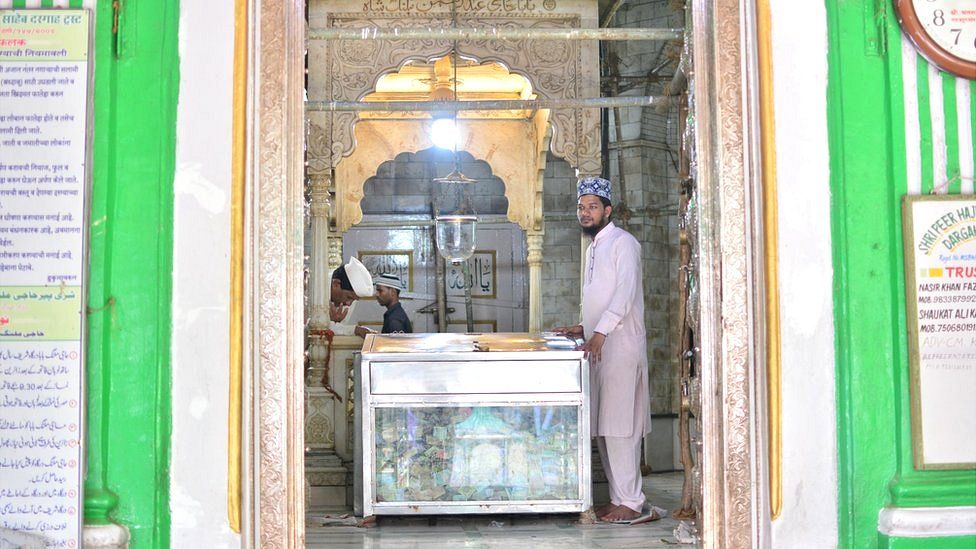-

-
-
Loading

Loading

A recent controversy arose when a top political leader in India expressed his desire to "liberate" a Sufi shrine, which is frequented by Indians of all faiths, exclusively for Hindus. The Haji Malang dargah, located on a hill outside of Mumbai, is believed to house the tomb of an Arab missionary who came to India over 700 years ago. Despite being at the center of a religious dispute, the shrine is seen as a symbol of assimilation and tolerance. Both Hindus and Muslims visit the shrine, offering flowers and a cloth symbolizing respect. The shrine is managed by a board that includes both Muslims and Hindus. However, the political leader, Maharashtra Chief Minister Eknath Shinde, caused controversy by asserting that the shrine belonged to Hindus and declaring his commitment to "liberating" it. This claim is seen by political observers as an attempt to position himself as the "Hindu savior" of Maharashtra, as securing support from the Hindu majority is crucial for him in the upcoming state assembly elections. However, this controversy has led to a decline in the number of devotees visiting the shrine and is also negatively impacting local businesses. The locals living on the hill struggle to access basic amenities such as potable water, and there is a lack of proper healthcare and education facilities. Despite the controversy, the locals emphasize that Hindus and Muslims have coexisted in harmony for centuries and do not wish to fight amongst themselves.